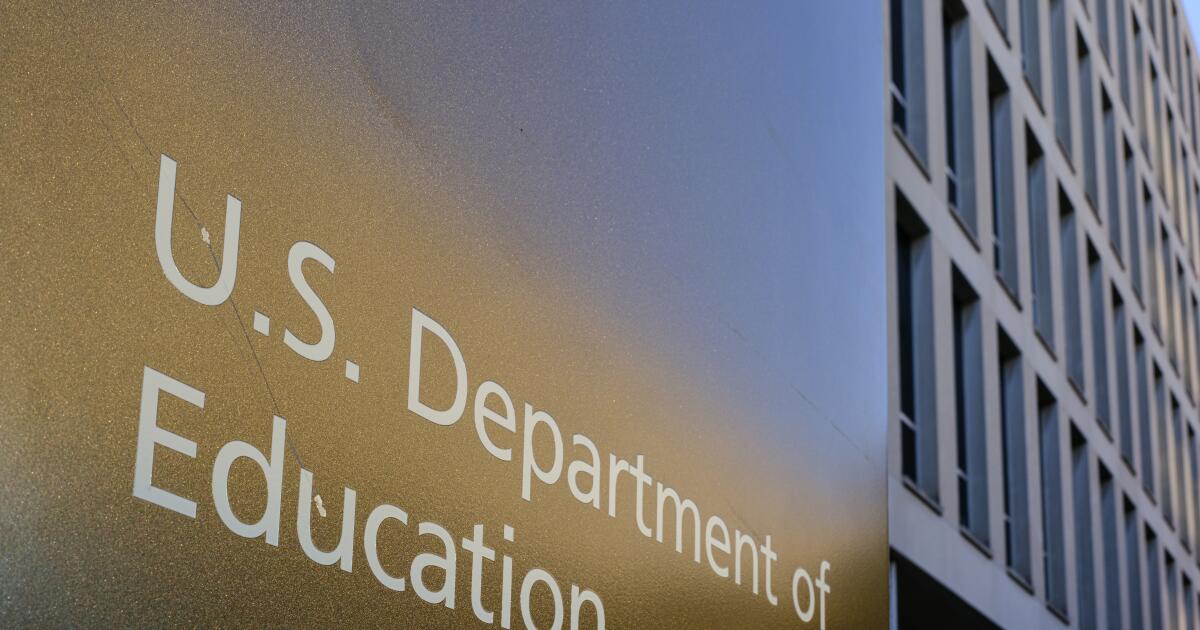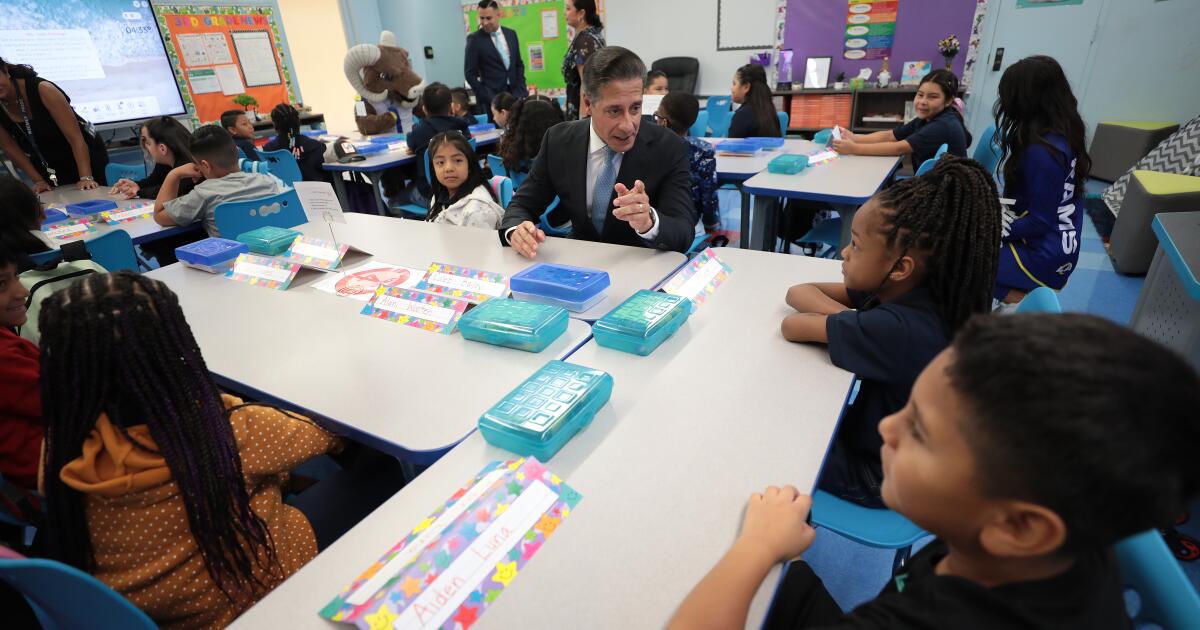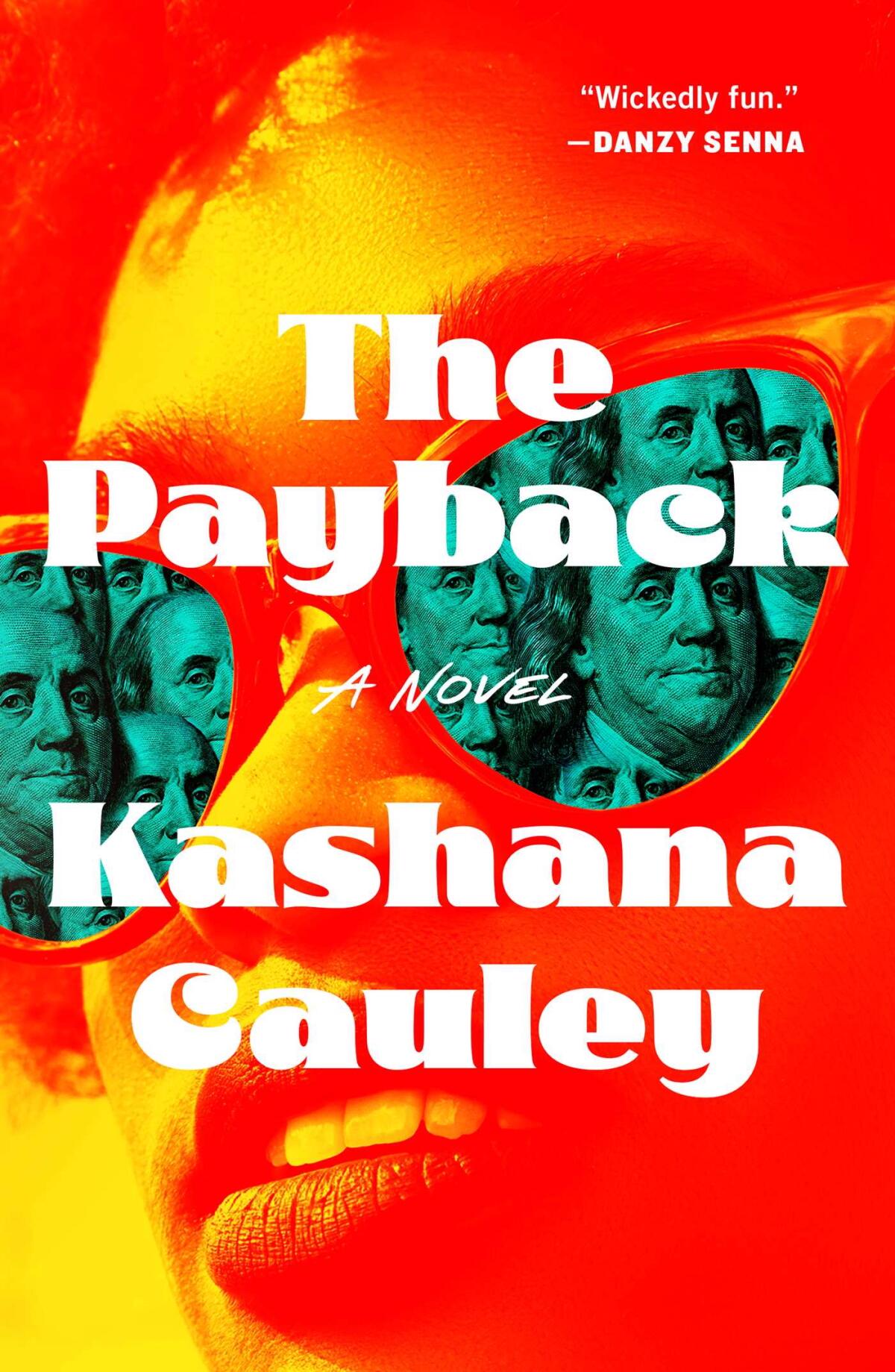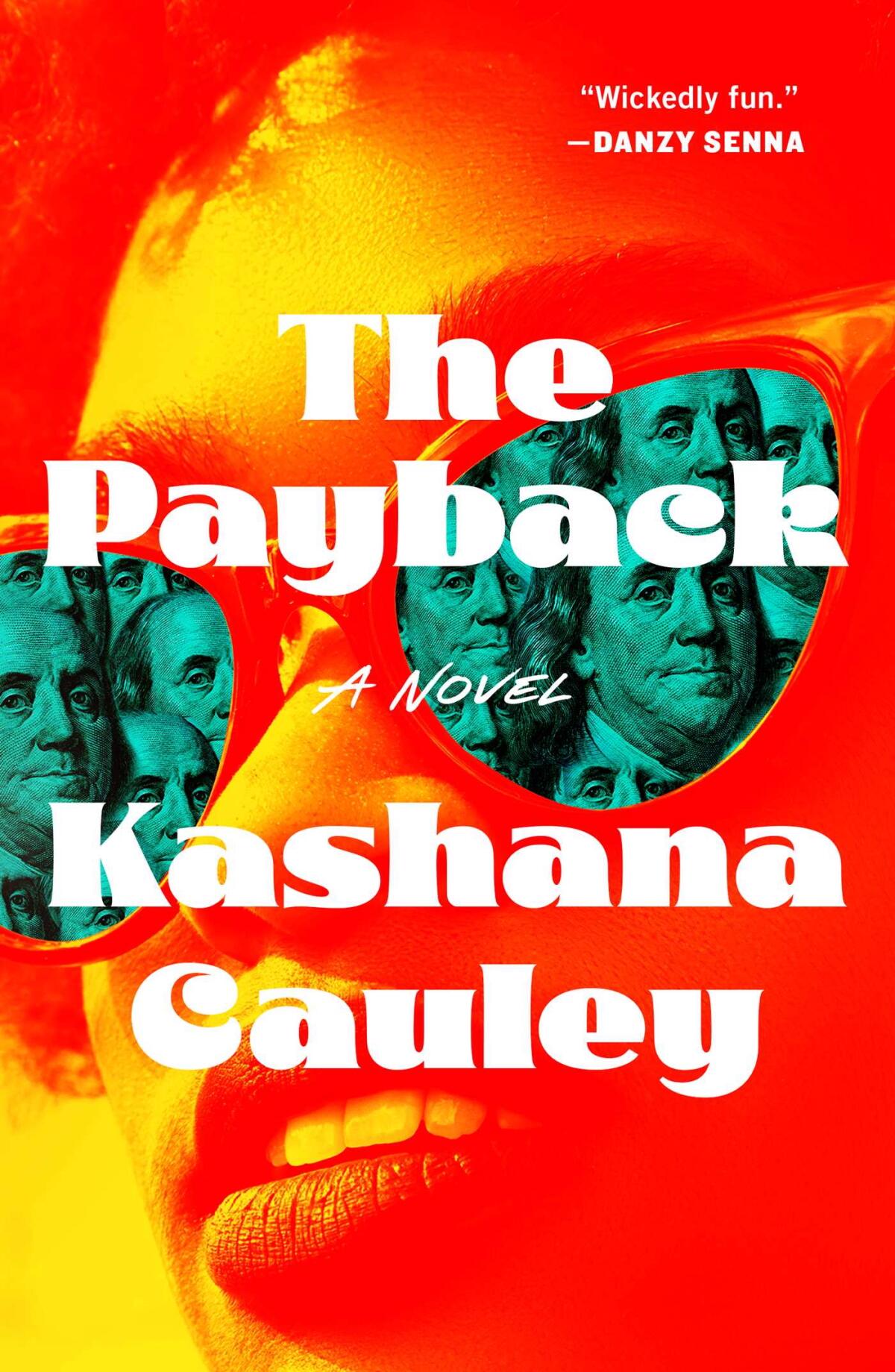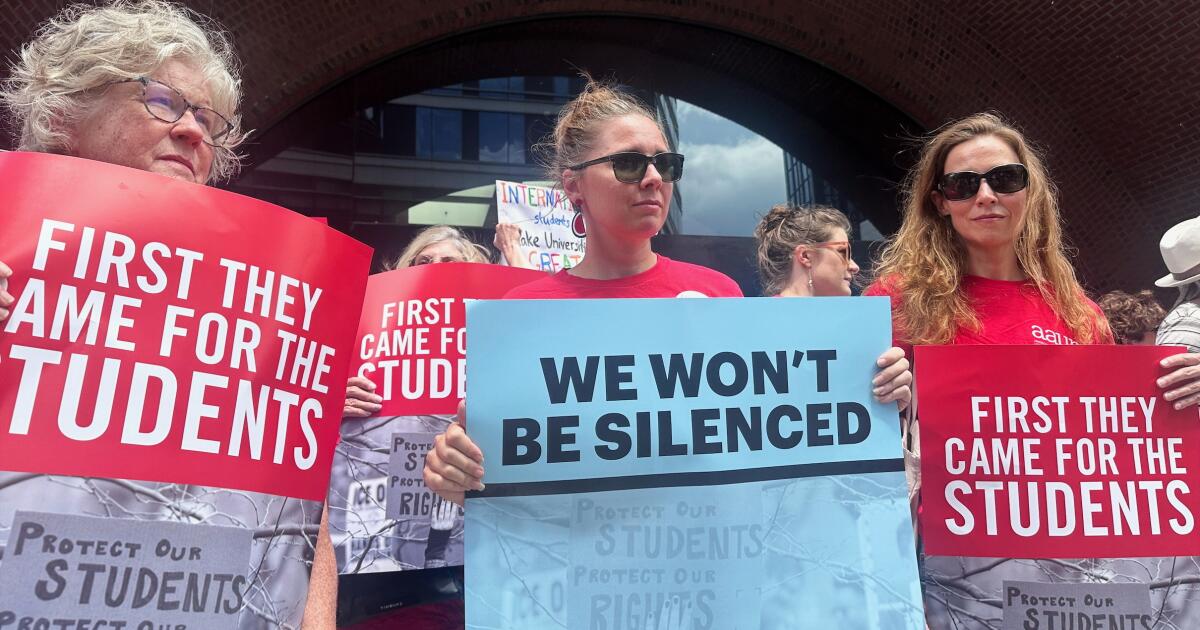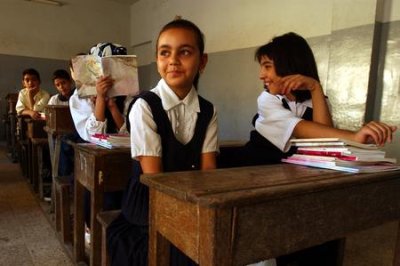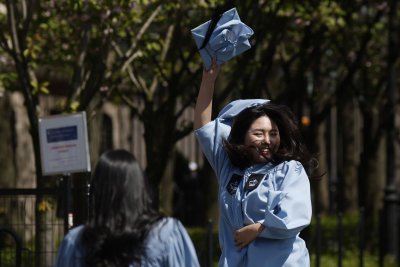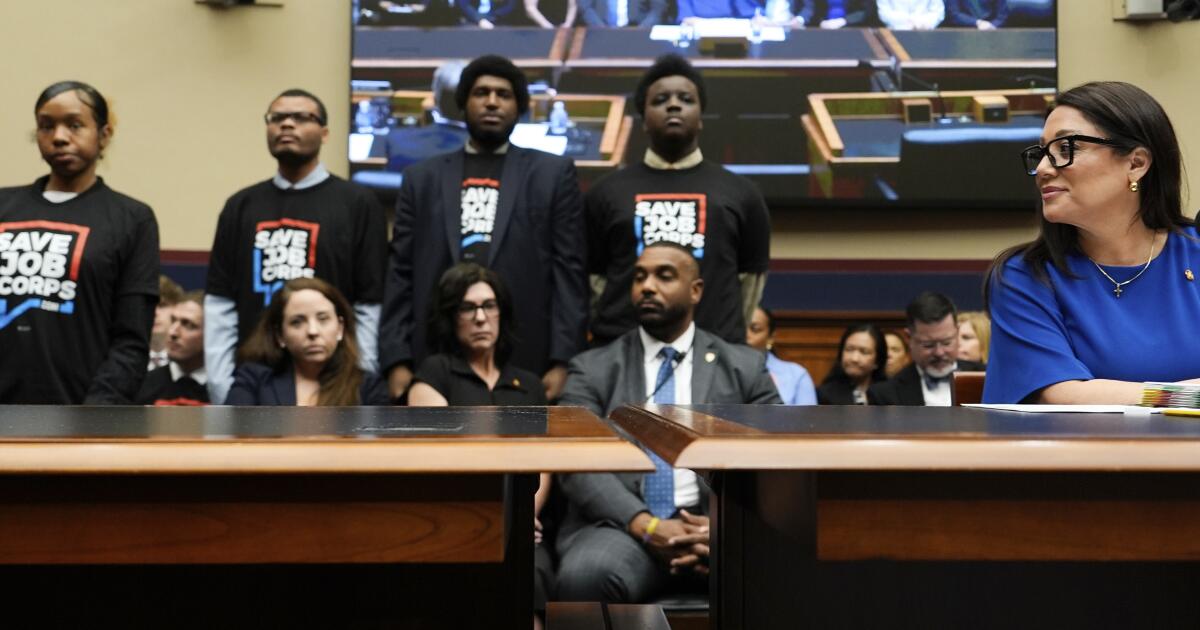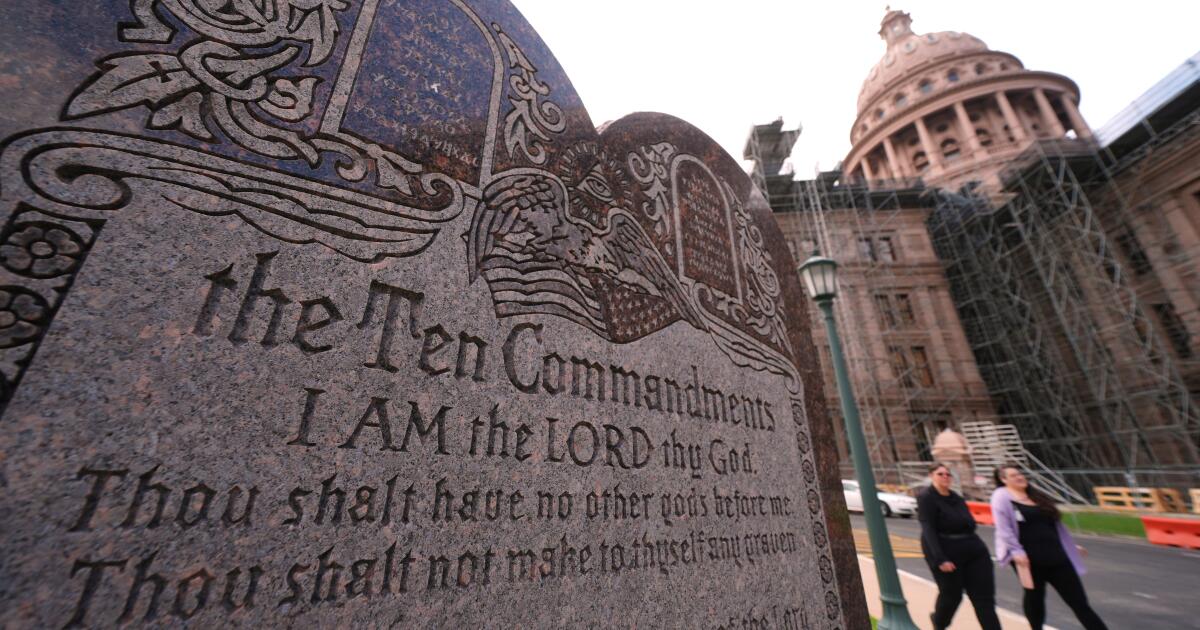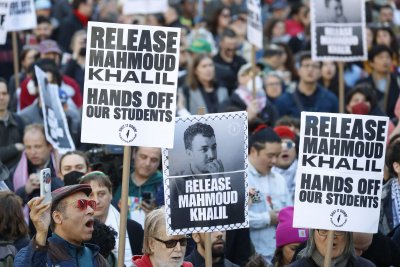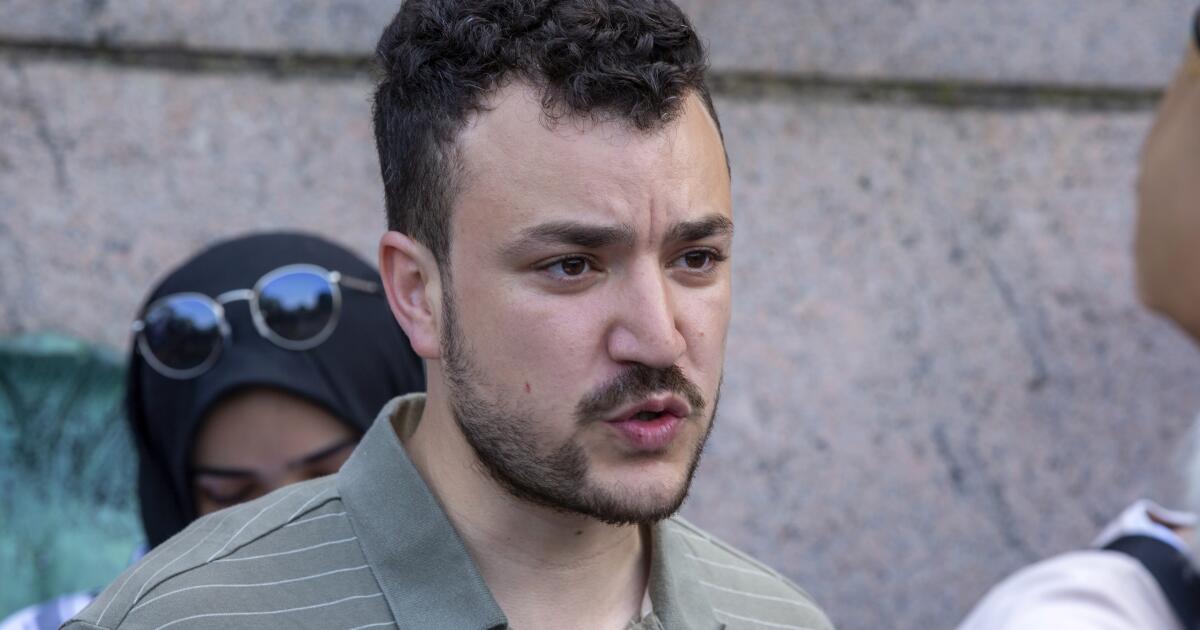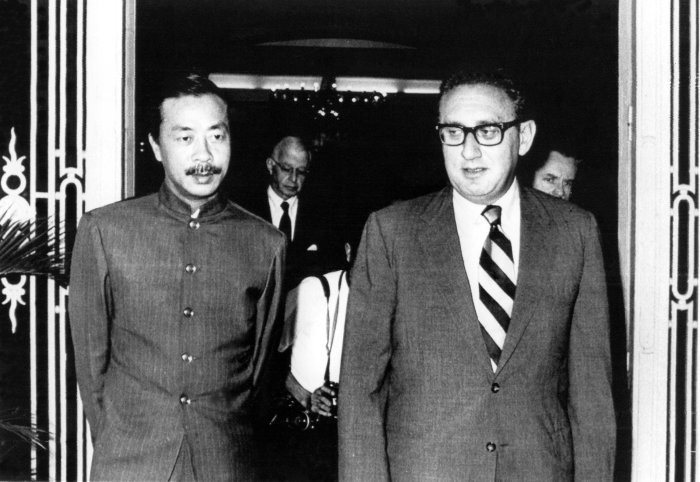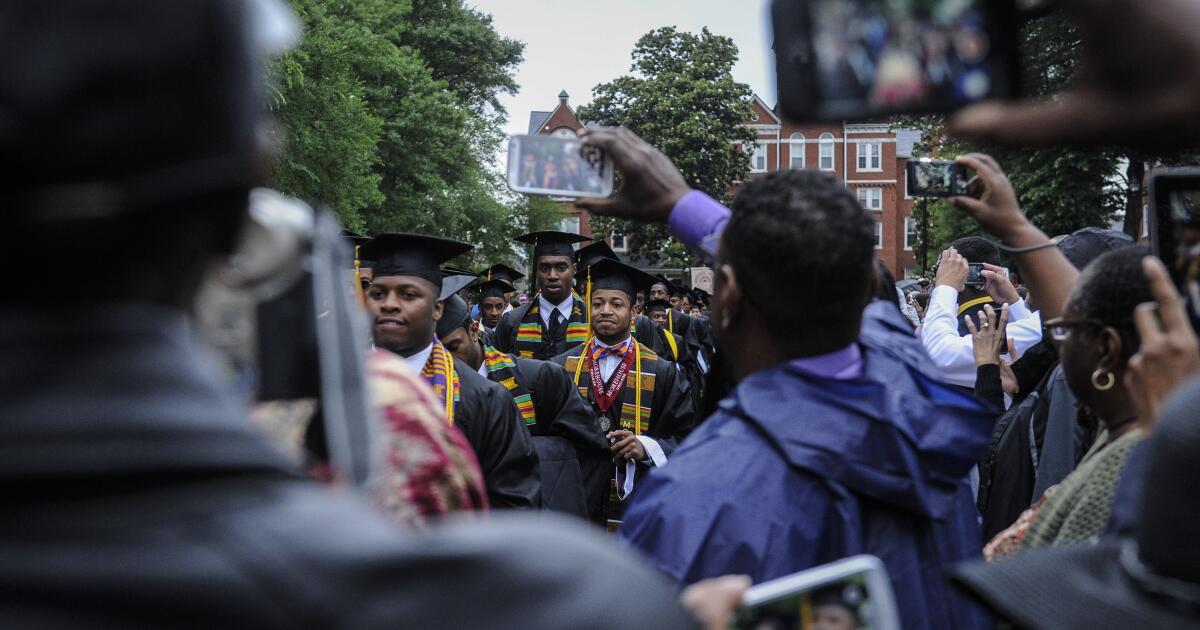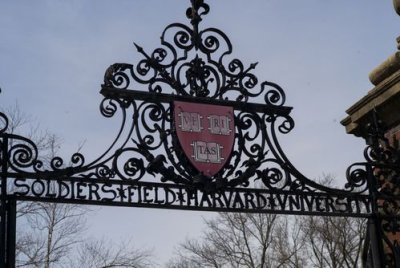California officials on Monday announced that the state is suing the Trump administration for holding back an estimated $939 million in education funds from the state — and about $6.8 billion nationwide — that school districts had expected to begin receiving on July 1, calling the action “unconstitutional, unlawful and arbitrary.”
The funding, already appropriated by Congress, supports programs to help students who are learning English and also those from migrant families. The money also boosts teacher training, after-school programs and classroom technology. The impact on Los Angeles Unified — the nation’s second-largest school system — was estimated by Supt. Alberto Carvalho to be at least $110.2 million.
California and three other Democratic-led states are taking the lead on the lawsuit on behalf of 23 states with Democratic attorneys general and the Democratic governors of Kentucky and Pennsylvania, which have Republican attorneys general. The suit was to be filed Monday in federal court in Rhode Island.
On Monday morning, Trump administration officials had not yet had an opportunity to review the lawsuit, but they have said no final decision has been made on the release of the withheld funds. The administration has cited alleged instances in which some of this money has been used in ways contrary to its policies. One example is the “separate and segregated academic instruction to new English learners,” according to a Trump administration official speaking not for attribution.
The Trump administration has tried to shut down — and often penalize — efforts to promote racial diversity, which it views as a form of discrimination and also has focused on controversies over LGBTQ+ issues. It also opposes what it views as advocacy and support for immigrants who lack legal status to live in the United States.
Although the held-back funds make up less than 1% of California’s education budget, they have an outsize cumulative effect. And they involve dollars that already have been accounted for in terms of staff hired and programs planned.
“With no rhyme or reason, the Trump Administration abruptly froze billions of dollars in education funding just weeks before the start of the school year,” California Atty. Gen. Rob Bonta said in a statement. “In doing so, it has threatened the existence of programs that provide critical after school and summer learning opportunities, that teach English to students, and that provide educational technology to our classrooms.”
The complaint argues that the Constitution does not give the executive branch power “to unilaterally refuse to spend appropriations that were passed by both houses of Congress and were signed into law.”
The lawsuit is being led by the attorneys general of Massachusetts, Colorado and Rhode Island. Colorado Gov. Jared Polis spoke of the issue at a webinar last week featuring activists and public officials.
“With many teachers not knowing whether to report to duty — that are funded by these streams — this is a very last minute, opaque decision to withhold billions of dollars from our schools,” said Polis, whose state was expecting to receive an estimated $80 million on July 1. “Every single school district in the country is impacted to some degree by this freeze, risking services like counseling, supporting students, teacher training — all investments that help students succeed.”
“These are funds that schools have already budgeted for — because the funding was already committed — and schools now have to make impossible decisions here just in the 11th hour, days or weeks before people were scheduled to report to work.”
Funding freeze blamed for ‘chaos’
The held-back funds are tied to programs that, in some cases, have received these dollars for decades. Each year the U.S. Department of Education makes around 25% of the funds available to states on or about July 1. This permits school districts to begin or continue their efforts in these areas.
“The plaintiff states have complied with the funding conditions set forth under the law and have state plans that the Department of Education has already approved,” according to a statement from Bonta’s office.
This year, instead of distributing the funding, the U.S. Department of Education notified school districts and state education offices, on June 30, that it would not be “obligating funds” for the affected programs.
In its 84-word communication to states, the administration listed the programs by their federal designation, including Title III-A, which supports students who are learning English. Also listed was Title I-C, which aims to help the children of migrant workers overcome learning challenges. Both programs had all their funds withheld.
Other similarly curtailed programs provide training for teachers and administrators; enhance the use of technology for academic achievement and digital literacy, and fund before- and after-school and summer programs.
“This funding freeze has immediately thrown into chaos plans for the upcoming academic year,” according to Bonta’s office. “Local education agencies have approved budgets, developed staffing plans and signed contracts to provide vital educational services under these grants.”
Los Angeles Unified plans to carry affected programs using district reserves, but this money was already designated for other uses over the long term. Ultimately, hundreds of positions are funded by the estimated $110.2 million at stake.
The greatest impact would be seen once schools begin to open across the nation in August, but there have been immediate effects.
The Thomasville Community Resource Center in Georgia ended its summer program three weeks early, affecting more than 300 children in two counties. In Missouri, the Laclede Literacy Council laid off 16 of 17 staff members after adult education funds were held back.
Texas is estimated to be short approximately $660 million in expected education funding, according to the Texas Standard news site. The freeze particularly affects students learning English, nearly one in four Texas students. During the 2024-25 school year, Texas received more than $132 million from the federal government to support these students.
A rising mountain of litigation
The Trump administration action — and the litigation that has followed — represent the latest of many conflicts over funding and policy with California.
Last week, it was the Trump administration that initiated litigation, suing California for allowing transgender athletes to compete on school sports teams that match their gender identity. The administration alleges that state officials are violating federal civil rights law by discriminating against women, a legal action that threatens billions of dollars in federal education funds.
In line with California law, state education policy specifically allows athletic participation based on a student’s gender identity.
In that litigation, the amount of funding that the Trump administration asserts to be at stake is staggering, with federal officials citing a figure of $44.3 billion in funding that California was allotted for the current year, including $3.8 billion not yet sent out — money that is immediately endangered.
“Potentially, all federal dollars to California public entities are at risk,” said a senior official with the U.S. Department of Education, who spoke on a not-for-attribution basis.
Separately, the department has canceled or modified more than $1 billion in contracts and grants “based on the inclusion of illegal DEI or being out of alignment with Administration priorities,” said spokesperson Madi Biedermann, alluding to programs categorized as including “diversity, equity and inclusion” components.
Altogether, California is involved in more than two dozens lawsuits opposing Trump administration actions.
“Taken together with his other attacks on education, President Trump seems comfortable risking the academic success of a generation to further his own misguided political agenda,” Bonta said. “But as with so many of his other actions, this funding freeze is blatantly illegal, and we’re confident the court will agree.”
The lawsuits against the Trump administration have resulted in a multitude of restraining orders, but have not halted all major Trump actions related to education and other areas.
Trump has insisted that he wants to return education to the states and cut wasteful and ineffective spending. He also has tried to exert greater federal control in education over so-called culture-war issues.
